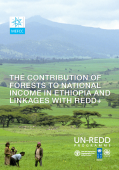
The Contribution of Forests to National Income in Ethiopia and Linkages with REDD+ presents the outcome of the assessment of the contribution of forest ecosystems to Ethiopia's national income (GDP). It shows that the contribution is considerably larger than previously thought.
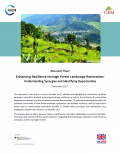
Forest landscape restoration (FLR) is the long-term process of regaining ecological functionality and enhancing human well-being across deforested or degraded forest landscapes. Enhancing Resilience through Forest Landscape Restoration: Understanding Synergies and Identifying Opportunities is the first in a series of IUCN Discussion Papers focused on FLR that intend to to inform decision-makers, practitioners, and other stakeholders involved in the fields of forestry and resilience of the opportunities for integrating forest landscape restoration with resilience principles, and the synergies therein.
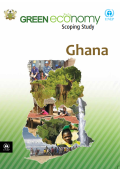
The aim of this Green Economy Scoping Study: Ghana is to identify how Ghana can transition to a green economy. The study focuses on agriculture (cocoa and fisheries); forestry and logging; and industry (electricity, water and sewage) as initial sectors for greening the economy in Ghana.
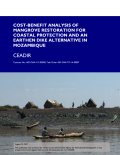
This report presents the findings from cost-benefit analyses of mangrove restoration for coastal protection and an earthen dike alternative in Quelimane, Mozambique.
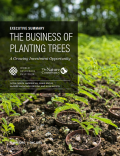
The report The Business of Planting Trees: A Growing Investment Opportunity highlights four promising investment themes in land restoration - technology, consumer products, project management, and commercial forestry - and includes case studies of 14 businesses across eight countries that are part of an emerging forest and land restoration economy.
